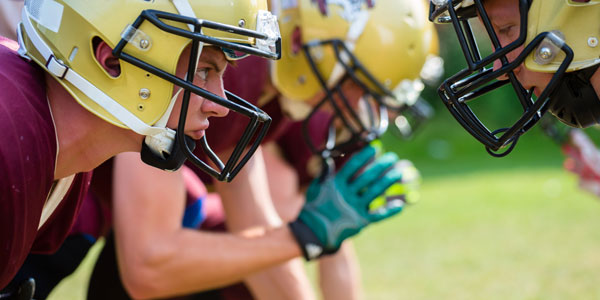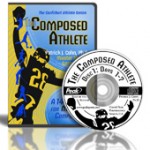
How do You Handle Game-Ending Mistakes?
Your confidence is directly impacted by how you handle mistakes, misses, and miscues.
All athletes make mistakes. How you respond after the mistake matters most.
For example, if you miss the last shot of a basketball game, will you let that miss cause you to pass up shots late in future games?
If you drop a pass in the endzone with time running out on the game clock, will you become fearful and anxious when the ball is thrown to you later in the season?
If you received a red card late in the second half of a match, would you become overly cautious in the next game?
No matter the situation, mistakes should not have a negative impact on future performances.
Athletes who have difficulty letting go of mistakes share several misconceptions…
Misconceptions
* Misconception #1: Mistakes are always negative – While mistakes can impact the result of a competition, mistakes provide valuable opportunities for learning and improving an athlete’s performance in future contests.
* Misconception #2: Mistakes are a sign of a lack of talent – Making mistakes doesn’t mean you lack talent or are not a good athlete. Mistakes are universal.
You need to learn how to respond or perform differently in similar circumstances to lift your game.
* Misconception #3: Avoiding mistakes is the key to success – Trying to avoid mistakes leads to athletes playing it safe and not pushing the limits of their potential.
To be successful, you must take calculated risks, aggressively compete, and hustle throughout a competition.
* Misconception #4: Peak performance is the absence of mistakes – The pursuit of perfection leads to anxious play, not peak performance.
Peak performance requires confidence in your ability to produce, given the athletic circumstances.
How do elite athletes move on quickly from mistakes or losses?
Elite athletes are not immune from mistakes; they just learned how to use those miscues to benefit their growth as athletes.
To move on from mistakes, elite athletes:
- Process the circumstances or what happened during a competition.
- Learn how to prevent, avoid, or rectify these areas of their game if necessary.
- Look to develop mental, physical, technical, or tactical skills to improve their performance when facing similar circumstances.
Most importantly, elite athletes don’t measure or assign significance to mistakes.
In other words, they believe there are no “big” mistakes. Mistakes are just mistakes or opportunities to learn and grow their game.
New England veteran and wide receiver Matthew Slater has made his share of mistakes during his career. However, Slater’s perspective on mistakes has kept him moving forward throughout his career.
SLATER: “Failure is a part of your career as a professional. You’re gonna have high moments, and you’re gonna have lows. You hope to have more highs and lows, but the most important thing is that you learn from it and grow and try to improve.”
Growing as an athlete is a process. You are a better athlete than ten years ago because you learned from your mistakes. The key to confidence and peak performance is to stay committed to the “growth process.”
Tip for Benefiting from Competition Mistakes
One way to ensure a positive response to mistakes is to ask yourself, “Does this response help or hurt my confidence and performance?”
This question allows you to examine the potential effects of your response. Once you see how your response impacts your game, you can choose an alternative way to process those mistakes.
Related Sports Psychology Articles
- Coping With Teammates Who Make Mistakes
- How to Overcome Adversity for Athletes
- 3 Ways to Quickly Rebound from Mistakes
*Subscribe to The Sports Psychology Podcast on iTunes
*Subscribe to The Sports Psychology Podcast on Spotify
Download a free sports psychology report to improve your mental game!
Learn more about our one-on-one mental game coaching.
The Composed Athlete

“The Composed Athlete” is presented on 80-minute Audio Programs with a 70-page step-by-step workbook that guides you through the program each day. It’s a complete system for conditioning your mind to have maximum composure in competition.
“The Composed Athlete” was developed for any level coach, parent, or junior to professional athlete who wants to improve performance and gain a competitive edge. It does not matter if you are a fledgling junior athlete; or a seasoned professional, plagued with distractions; or you just wanting to learn how to improve your composure…
